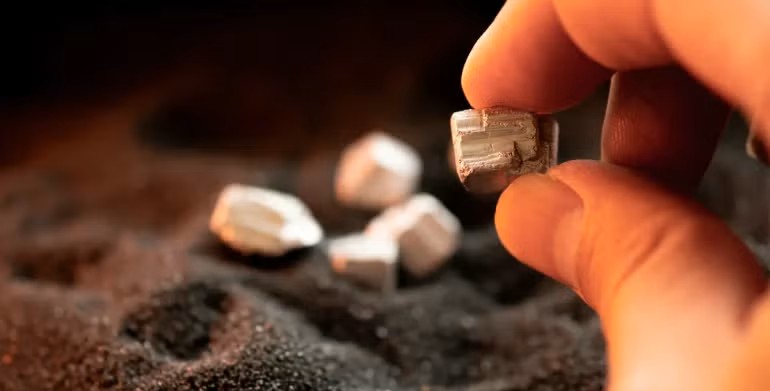(3 Minutes Read)
The deal, which includes a price guarantee for neodymium-praseodymium (Nd-Pr) and a commitment to purchase all output from a new magnet plant in Texas, underscores the growing urgency among Western nations to secure non-Chinese supplies of these essential materials.
The recent USD 400 million investment by the US Department of Defence (DoD) in MP Materials, a leading rare earths producer, has drawn global attention to the critical minerals sector—and Namibia could be next in line for similar strategic partnerships.
The deal, which includes a price guarantee for neodymium-praseodymium (Nd-Pr) and a commitment to purchase all output from a new magnet plant in Texas, underscores the growing urgency among Western nations to secure non-Chinese supplies of these essential materials.
For Namibia, a country rich in heavy rare earth elements such as terbium and dysprosium, the US move highlights an opportunity to leverage its own resources. Namibia Critical Metals (NMI), a Canadian-listed company with a major project in the country, has already caught the eye of Japan, another nation keen on reducing its reliance on China.
The company’s Lofdal project, fully permitted and shovel-ready, is one of the world’s largest known deposits of these heavy rare earths—key components in high-performance magnets used in electric vehicles, wind turbines, and defense systems.
The DoD’s agreement with MP Materials includes a minimum price guarantee of $110 per kilogram for Nd-Pr, two light rare earth elements crucial for magnet production. This price floor, valid for a decade, ensures stability for MP Materials, even if market prices drop. Additionally, the DoD has committed to purchasing all output from MP’s new “10X” magnet plant in Texas, which aims to produce 10 metric tons of neodymium-iron-boron (NdFeB) magnets annually—enough to make it the largest producer outside China.
Read Also:
https://trendsnafrica.com/indian-prime-minister-narendra-modi-visits-ghana-and-namibia/
The US DoD’s investment in MP Materials reflects a broader trend of Western nations scrambling to secure critical minerals. The European Union has listed rare earths as strategic materials, while the US has increased funding for domestic processing and recycling.





